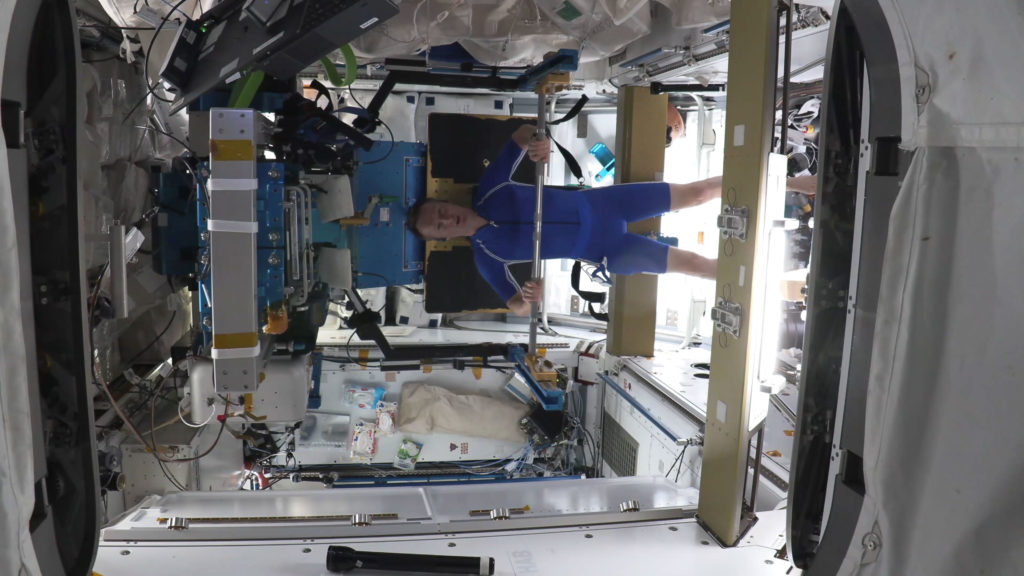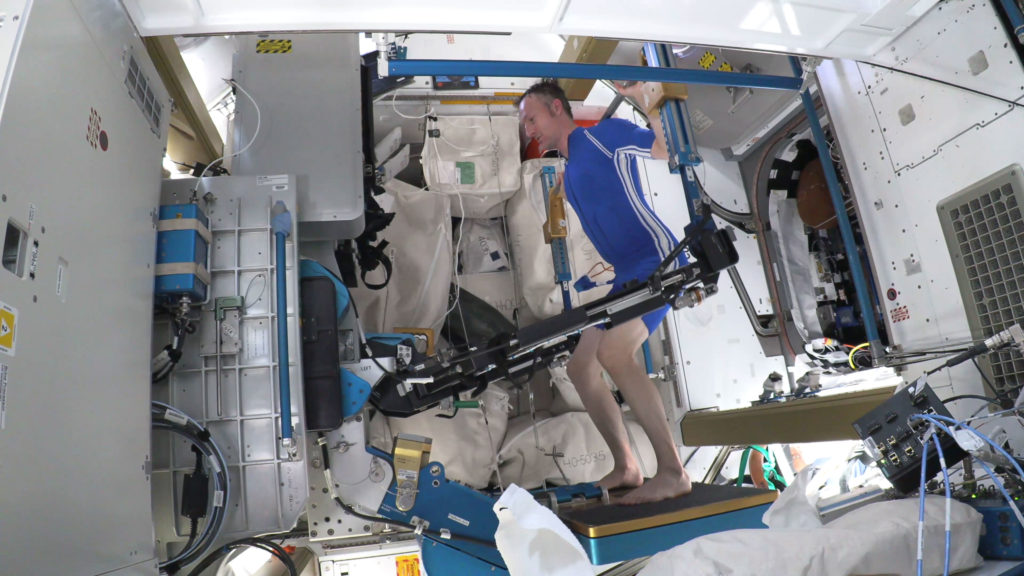Electrical muscle stimulation in space – a training boost for astronauts
Human locomotion on Earth relies on trunk and limb muscles for body stability. To prevent muscle atrophy in microgravity, astronauts train for around 2.5 hours a day on board the International Space Station ISS. The EasyMotionSkin training system will support them with the use of electrical muscle stimulation (EMS) as an efficient exercise method. The system uses low-frequency electrical impulses to provide additional stimulation to the body’s muscles. This ensures increased oxygen uptake, improved performance and optimised training effects. German ESA astronaut Matthias Maurer used the system in his training programme for the first time during his Cosmic Kiss mission, combining running, cycling and strength training with the EasyMotionSkin technology.
The training suit was specially adapted by OHB System AG for use on the space station. The individually controllable dry electrodes are integrated into the suit and supplied with electricity via the Power Box using an app. This allows different muscle groups to be trained in a targeted manner. In addition to undergoing various tests, the connection to the Power Box had to be redesigned for use on the space station in order to be usable for the space sports programme. The team from the Center for Space Medicine at Charité Berlin wants to prevent deconditioning (loss of function) of the neuromuscular system. If they succeed, it will be a big step towards a mission to Mars.
A mission to Mars is expected to last approximately two years, with astronauts set to work independently on the Red Planet after nine months of flight. If muscle atrophy can now be counteracted even more effectively with significantly less time, only fit astronauts will set foot on Mars. However, this training technology is not only interesting for space; while EMS training is already being used in selected fitness centres, it has great potential, particularly in the field of rehabilitation, even after intensive medical treatment.
Links:
German Aerospace Center (DLR)
German Space Agency at DLR – Research and Exploration
E-Mail contact-dlr@DLR.de

